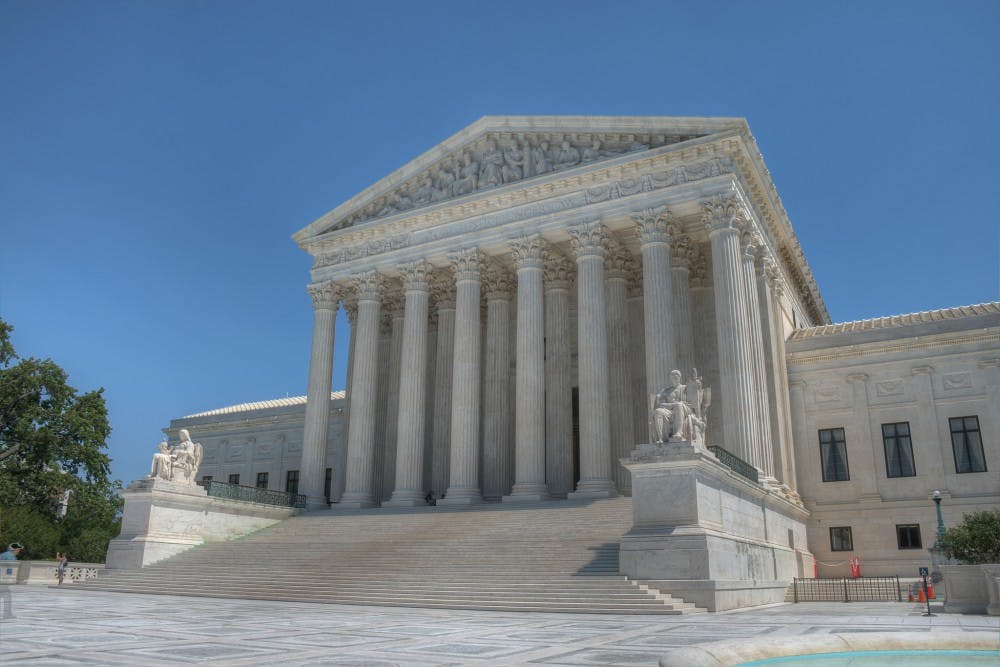Joseph Wood — a convicted double-murderer — received 15 injections of midazolam and hydromorphone in 2014 in an effort to complete his botched execution. The inmate reportedly gasped and snorted nearly two hours before dying. In addition to Wood’s painful and drawn-out death, several more recent examples of unsuccessful lethal injections exist.
In the same year, Dennis McGuire died an excruciating 25 minutes after his initial injection — with witnesses reporting his visible and audible struggle on the gurney. Making this case even more horrific was Ohio’s use of an untested and unregulated drug cocktail, despite public protest and doctors’ warnings. The effective use of human guinea pigs by state governments warrants condemnations of capital punishment as cruel and unusual punishment outlawed in the Eighth Amendment. Moreover, staggering and abundant evidence of racial and socioeconomic discrimination in death sentences points to a violation of the Fourteenth Amendment’s equal protection clause. Ignoring its compelling logistical errors — such as its ineffectuality as a deterrent, high price tag and frequent missentencing — capital punishment is just simply unconstitutional.
The 1972 Supreme Court case Furman v. Georgia temporarily outlawed the death penalty nationwide, denouncing the practice as “harsh, freakish, and arbitrary.” Additionally, it criticized the systematic racial violence inherent in capital punishment, as evidenced by the disproportional number of black Americans sentenced to death over white Americans and its institutional roots in slavery. However, the court’s decision applied more to the practical application of lethal injections rather than the theoretical idea of the death penalty. By creating new laws and principals, including a two-stage trial procedure, states could resume their use of capital punishment.
In 1976, the death penalty was reaffirmed as constitutional in the landmark case Gregg v. Georgia. The newly-issued decision claimed that state legislative reforms would lead to greater objectivity and deliberation in the sentencing and application of the death penalty. In theory, the statues would create safeguards to prevent further bias in death row convictions. Since Gregg v. Georgia, however, the reality of capital punishment has deviated acutely from the justices vision for an objective sentencing process and humane executions. The death penalty remains grossly inhumane and undeniably prejudice, and thus should be abolished by the federal judiciary.
The applications of capital punishment following 1976 provide ample evidence that lethal injection can aptly be deemed cruel and unusual. There has been a severe shortage of drugs used for lethal injection due to its general unacceptability in the medical world. Up until 2011, states typically used sodium thiopental, but its use was halted due to the drug provider Hospira’s opposition to the practice. Subsequently, the death penalty began to be administered with pentobarbital — a practice which also stopped because the manufacturer ceased production. Several other drug corporations also countered capital punishment by refusing to sell their products to state governments. In response, individual states began the production of untested and unregulated synthetic drugs.
Consequently, lethal injections have one of the highest rates of mishap of any form of execution. Roughly seven percent of executions via drug cocktails are botched — among those are the horrific cases of Dennis McGuire, Joseph Wood and Clayton D. Lockett. Rather than exploiting inmates to tweak and streamline their killing capacities, states should outlaw the potentially torturous practice.
Clear evidence of discrimination against minorities and people of lower socio-economic background further proves the death penalty’s incompatibility with the United States Constitution. In states where capital punishment is legal that have conducted studies into racial patterns and sentencing, 96 percent have reported explicit discrimination against minorities groups. The chosen victim of crimes also bears weight in death penalty sentencing — with 76 percent of death row inmates condemned for murdering a white person, even though black Americans makeup over half of homicide victims. Moreover, inmates of lower-incomes are far more likely to be charged with the death penalty.
Many death row inmates’ reliance on court-appointed attorneys often leads to inadequate representation in the most dire of cases. A study in Texas revealed that a quarter of inmates sentenced to death had public attorneys who had been punished for professional misconduct. The irreversible nature of capital punishment leads no room for unfair sentencing due to poor representation. A denial of continual patterns of discrimination in death penalty states is the denial of a history of the systemic oppression of minority groups and people of a lower socioeconomic status in the United States.
Ultimately, the reform of capital punishment will never be enough to prove its constitutionality — regardless of assertions from Gregg v. Georgia. Despite the best efforts of the United States judicial system, juries can never reach a level of perfection sufficient to determine who lives and who dies. Attempts in the past have produced little more than arbitrary and often-discriminatory sentences. In application, the death penalty via lethal injection can result in horrific and drawn-out deaths, which provides more than adequate grounds for being considered cruel and unusual. Any society with a basic respect for human life should outlaw the death penalty, but the United States has a legal obligation to do so under the Constitution.
Charlotte Lawson is an Opinion columnist for The Cavalier Daily. She can be reached at opinion@cavalierdaily.com.







